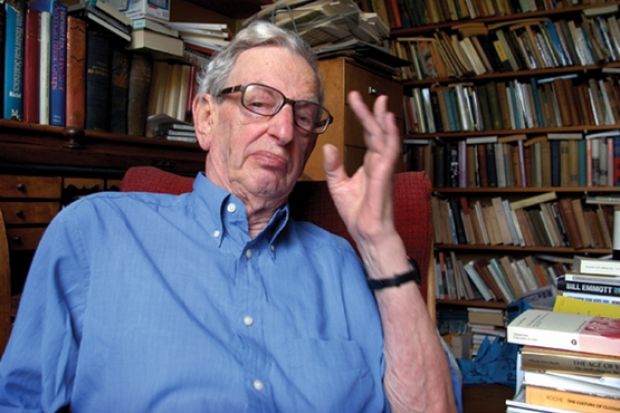In a speech of welcome, David Latchman, master of Birkbeck – which Professor Hobsbawm joined as a lecturer in 1947 and where he served as president from 2002 until his death – said he was someone who had “clearly made a difference to people’s lives”.
At graduation ceremonies, Professor Latchman recalled of Professor Hobsbawm, “the production line would be slowed down by people saying: ‘You influenced me! You are the reason I am here! You are the reason why I graduated!’ A proportion of them would be so excited at meeting their hero that they walked off the stage without remembering to shake hands with me.”
Roy Foster, Carroll Builders professor of Irish history at the University of Oxford, described the vastly learned Professor Hobsbawm as “a worldwide web in himself”, while Roderick Floud, provost of Gresham College, claimed he had “reinvented labour history” and “electrified social history”.
Leslie Bethell, a British historian of Latin America now based in Brazil, noted Professor Hobsbawm’s extraordinary fame in that country. Even in his 80s, when he attended a literary festival there, he was “greeted like a visiting rock star with girls in the street shouting out: Eric, Eric, give me a kiss!’”
Daughter Julia Hobsbawm spoke of her father as an inspiring but “deeply impractical” man who “once sat next to me on the bus for 10 minutes before he realised I was there”.
Martin Jacques, former editor of Marxism Today, where Professor Hobsbawm was for many years their “most important and influential writer” discovered in him “the exact antithesis of the dull predictability often found on the left. You never knew quite what he was going to say, but you waited on his every word.”
Simon Schama, university professor of history and art history at ColumbiaUniversity, recalled standing in a bookshop “bug-eyed with silent illumination” when he first came across Professor Hobsbawm’s work as he was about to apply for university. Later acquaintance had only deepened his admiration for “bandit-hunting Eric, jazzy, snazzy Eric” as a “complete historian who defied all the little games of side-choosing” and “simply couldn’t get enough of the exhilarating peculiarity of the human condition”.


